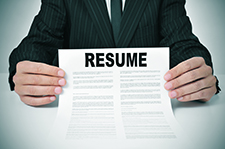 Earlier this year, LinkedIn released its fifth annual list of 10 words that are most overused by its members worldwide. In doing so, the social networking site encourages users to avoid words that are empty in meaning and sound good, but say virtually nothing. Those words include:
Earlier this year, LinkedIn released its fifth annual list of 10 words that are most overused by its members worldwide. In doing so, the social networking site encourages users to avoid words that are empty in meaning and sound good, but say virtually nothing. Those words include:
- Motivated
- Passionate
- Creative
- Driven
- Extensive experience
- Responsible
- Strategic
- Track record
- Organizational
- Expert
These words are generic descriptors that don’t offer much true insight into your personality, experience, or work ethic. Instead of simply using the above words on your profile or resume, try to find a way to show them instead.
For example, if you worked in customer service and succeeded in a sales initiative that increased sales by 10%, consider sharing your results. Instead of writing “motivated,” write “drove sales to a 10% increase.” Or, if your creativity led you to solve a problem and save your workplace money, don’t write “creative.” Instead, write “created a solution to a workplace problem that saved the company $1,000 annually.”
After you delete overused buzzwords, your LinkedIn profile may appear a bit empty. Step it up by showcasing your skill set in your summary, customizing your headline, adding volunteer activity and causes, and uploading a professional photo. According to LinkedIn data, profiles with a photo are 14 times more likely to be viewed.
What tips do you have for keeping your LinkedIn profile in shape? Are there other buzzwords that should be cut from profiles? Let us know in the comments section below!
Movin’ On Up is brought to you by Express Employment Professionals.






